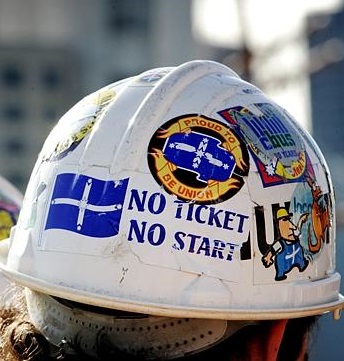Big five fear witch-hunt as Royal Commission rolls onsite
 The Royal Commission into Trade Union Governance and Corruption kicks off today, which will reveal much about the state of Australian unionism, cronyism and lobbyism.
The Royal Commission into Trade Union Governance and Corruption kicks off today, which will reveal much about the state of Australian unionism, cronyism and lobbyism.
The inquiry draws a clear line between the interests of the previous federal government and the current one, aiming to reverse favour from unions to businesses when it come to industrial disputes.
The probe will be conducted by former High Court judge Dyson Heydon to investigate five of Australia’s most powerful unions; the Health Services Union (HSU), Australian Workers' Union (AWU), Construction Forestry Mining and Energy Union (CFMEU), Transport Workers’ Union (TWU) and the Electrical Trades Union (ETU).
Unionists have decried what they consider a “political witch-hunt”.
The Australian Council of Trade Unions says the terms on which it is based focus on the groups with the strongest links to the Labor Party.
The ACTU say it ignores the possibility that corruption extends into the business or non-Labor political communities, though other say the inquiry could easily reach into these areas.
Dave Noonan from the CFMEU has told the ABC that he believes there will be bad behaviour that needs prosecution.
“Clearly there have been activities by some unions which have led to a lot of community concern,” Mr Noonan said.
“If we look at activities within the Health Services Union, those individuals who have acted corruptly have done a lot of damage to unions and to the labour movement.
“Our position is very clear in relation to the issue of anyone who's behaved corruptly.
“We believe that someone who takes a bribe off a boss no longer represents the members and no longer represents the union. That person should be kicked out of the union and out of the union movement.”
Wilhelm Harnisch from the Master Builders Association told reporters the inquiry was necessary because the warnings of previous reviews have now worn off, and many have gone back to their dodgy behaviour.
“When you looked at Cole Royal Commission and what happened afterwards, there is clear evidence before and after that the Cole Royal Commission and the enforcement agency, like the ABCC, was able to change the culture,” Harnisch said.
“The proof... was that we had a significant decline in the number of days lost due to industrial disputes. We had confidence back into the industry and union behaviour was modified as a consequence.”
A former Australian Building and Construction Commission officer, Mr John Lloyd, said the Royal Commission will help fight; “a penetration ... of bikie gangs and criminal and corrupt conduct in the industry”.
“What is of real concern I think is that ordinary Australian contractors and their workers go to work on building construction sites throughout the country and they probably are not that confident that they won't encounter that type of standover, coercion, intimidation activity of which we hear,” he said.
“The Federal Government says the sword will cut both ways, and employers will also be investigated.”







 Print
Print